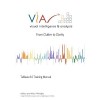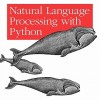My unstoppable reading continues, this time I’ve polished off The Tableau 8.0 Training Manual: From Clutter to Clarity by Larry Keller. This post is part review of the book, and part review of Tableau. Tableau is a data visualisation application which grew out of academic research on visualising databases. I’ve used Tableau Public a little bit […]


